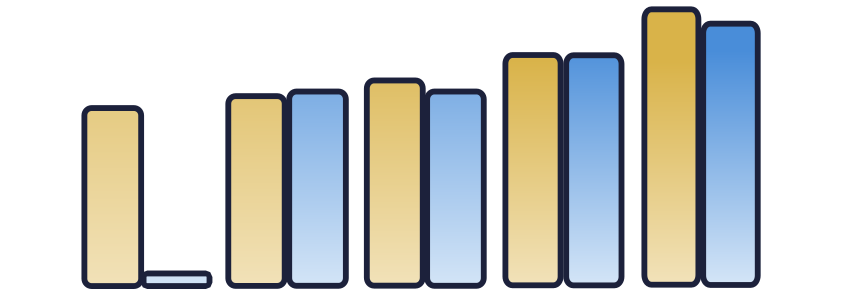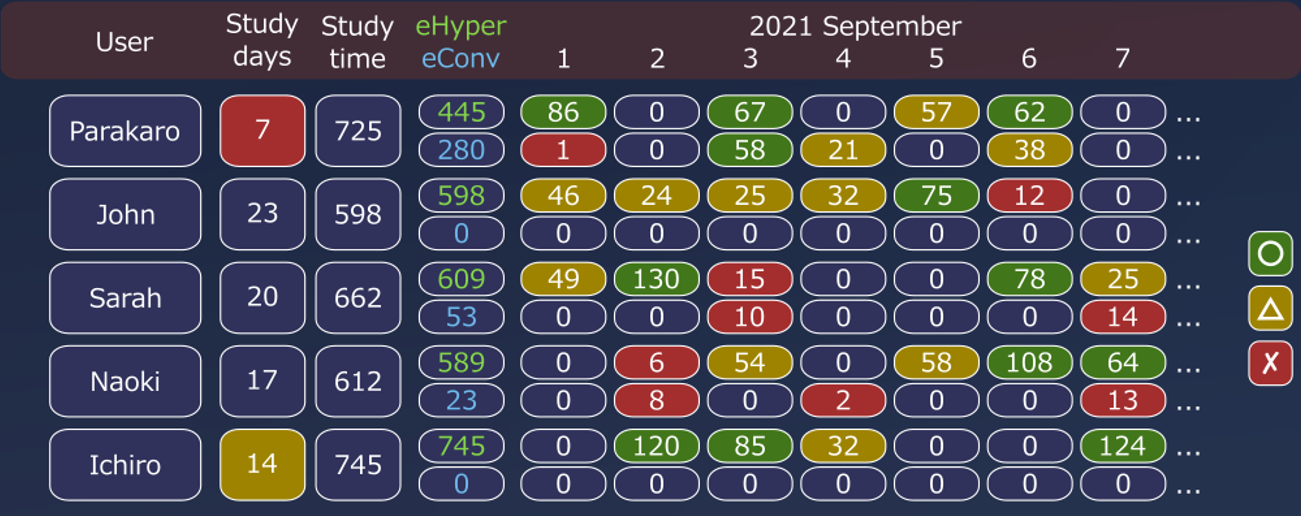CASE STUDIES
Unique solutions for unique customers
Mr. A was a team leader at a major Japanese
automobile company. He was ordered to take on an overseas residence in Malaysia
for three years, but had next to no foreign language ability.
Mr. A scored 18 out of 100 on his
communication ability evaluation and
51 out of 100 on
the potential test. He also stated that
he did not like learning a foreign language due to his experiences at
junior high school. However, he was told by his company that he needed
to learn enough English to manage production in Malaysia.
Based on this information, we created
a five-day intensive curriculum
combining beginner English, introductory Malay and Malaysian cultural lessons.
Japanese was prohibited during the five days.
| Day | Activities |
|---|---|
| One | Malaysian culture and basic Malay grammar |
| Two | Basic conversations and roleplay |
| Three | Advanced conversations |
| Four | Applied work skill conversations ans other activities |
| Five | Mission statement practice and presentation |

Five-days intensive course
On this course, Mr. A learned
applied communication activities
in the classroom and then studied for an extra two hours of
e-learning self-study
per day. His communication ability was
evaluated at the end of each day.
He also underwent English business
dinner practice on day three and a presentation and Q&A session in front of
the factory manager on day five.
On day two, analysis of Mr. A’s e-learning study time showed that
Mr. A had not done any self-study using e-learning.
The analysis was shared with Mr. A’s superior at his company in real-time,
after which the superior spoke to Mr. A immediate to rectify the problem.
We then held a ten-minute follow-up conversation at lunchtime to
reassure Mr. A of the benefit of self-study.
Thereafter, Mr. A was sure to study for two hours per day in his own time.
After a total of 50 hours of study, Mr. A’s communication ability
evaluation score improved to 28 out of 100,
which is a level at which a student
can hold a simple work conversation
and can express simple opinions clearly.
Moreover, Mr. A became able to deal with
common production line problems using simple English and Malay.
He also gave a three-minute speech in English in front of the
factory manager without using a script.
Mr. A - CAE Score and Study Time

30
25
20
15
10
5
0
200
170
130
100
70
30
0
We later found that he had successfully completed his three-year stint in Malaysia and received a promotion upon return to Japan.
A major Japanese electronics company
approached us to train a group of ten potential managers in English
over twelve months. The students were expected
to become able to negotiate with overseas customers, train and manage
overseas staff and manage meetings in English. Their
potential scores ranged from
55 to 89 out of 100, while their individual
communication ability evaluation scores ranged from
22 to 49 out of 100.
Based on this information, we separated the students into
three classes according to
their current level, and
created curricula to attain
the company’s goals.
The curricula consisted of online lessons, appropriate e-learning materials
and two online advanced language camps.
| Name | Potential Score | CAE Score |
|---|---|---|
| Student A | 59 | 22 |
| Student B | 68 | 23 |
| Student C | 51 | 27 |
| Student D | 62 | 34 |
| Student E | 55 | 39 |
| Student F | 71 | 44 |
| Student G | 68 | 45 |
| Student H | 76 | 46 |
| Student I | 89 | 47 |
| Student J | 81 | 49 |
Begginer class
Intermediate class
Advanced Class
During the course, we held individual assessments every three months, at which time we tracked the student’s improvements in communication ability, set study time and progress milestones as well as one short-term, one mid-term and one-long-term goal per student. We also provided the current managers at the electronics company with monthly reports on individual e-learning study times and performance in lesson.

Final results after ninety hours of
online lessons and a minimum of thirty minutes a day of e-learning showed an average
improvement of 13.2 points on the
communication ability evaluation. In addition, each student became
able to carry out negotiations, presentations, evaluations and
opinion-giving in meetings with foreigners at a level appropriate
to their linguistic ability. Moreover, all students showed
a large increase in their score on the TOEIC test.
Subsequently, all ten students became section managers in charge
of several teams of subordinates. They all received pay rises and other benefits
upon becoming managers, and several of the students have since been
promoted again.

